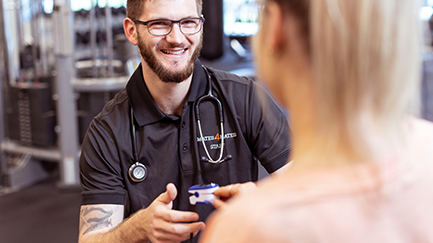One of the biggest difficulties many veterans experience when leaving the Defence Force is the transition back into civilian life.
The experiences, skills, language, and hierarchal culture of Defence may not translate to the civilian environment, creating a potential barrier for veterans to understand civilians, which can lead to feelings of alienation, exclusion, and frustration during and after the transition process.
It is important to know that with time, effort and the right support, veterans can work through this challenge.
One way that can be beneficial for the social health of transitioning veterans, as well as their mental and physical health, is to look at engaging in civilian social activities.
The social benefits of engaging in civilian activities
Engaging in social activities, particularly sports and group exercise, is an opportunity to be explore your new environment and can help you create new social connections, understand the social norms of civilian life, learn new and healthy patterns of interaction, and help foster group bonds.
An example may be your local
Parkrun, which is a free community event, or other local community sporting teams or social events.
How exercise can promote social connections
Exercising for health, both physical and mental, remains important for veterans after transitioning to civilian life. The Defence community often face physical or psychological injuries that can be safely supported through exercise interventions prescribed by a professional, such as an exercise physiologist.
Using exercise not only for rehabilitation but as a social connection tool can be a powerful way to decouple the link between exercise and readiness for deployment, and instead learn to enjoy exercise again and engage with your family and/or those within your community.
Tips for engaging in civilian activities
Think about what activities you enjoy doing and find groups involved in these activities. Many clubs and gyms have social events where you can meet new people in relaxed, low-pressure environments.
Building civilian friendships allows insight into cultural values and beliefs, and gives you an opportunity to get tips on communicating appropriately in this new environment.
The key is to try new things: if you enjoy an activity then you have found a new hobby, and if not, then you have tried something new and can tick it off the list.
By starting small with social connection activities at Mates4Mates and other veteran-supporting organisations where you’re surrounded with like-minded veterans, this can increase your confidence to engage in civilian activities and events outside of the veteran community.
Support at Mates4Mates
At Mates4Mates, our team are here to support veterans who may be struggling with the process of transitioning from the military to civilian life.
We have regular
social connection activities across Australia and online to help you meet other veterans with similar experiences to your own, allowing you to explore and discover what you enjoy doing in a safe and supportive environment.
If you are looking to improve your independence through fitness,
Mates4Mates exercise physiologists are available to provide individualised support.
Alternatively,
Mates4Mates psychologists, counsellors and social workers are available to provide mental health support to help veterans overcome the barriers of transitioning out of the Defence Force.
To find out more, reach out to Mates4Mates on
1300 4 MATES (62 837) for a confidential chat.
Written by Andrew Crawshaw, Mates4Mates Exercise Physiologist





